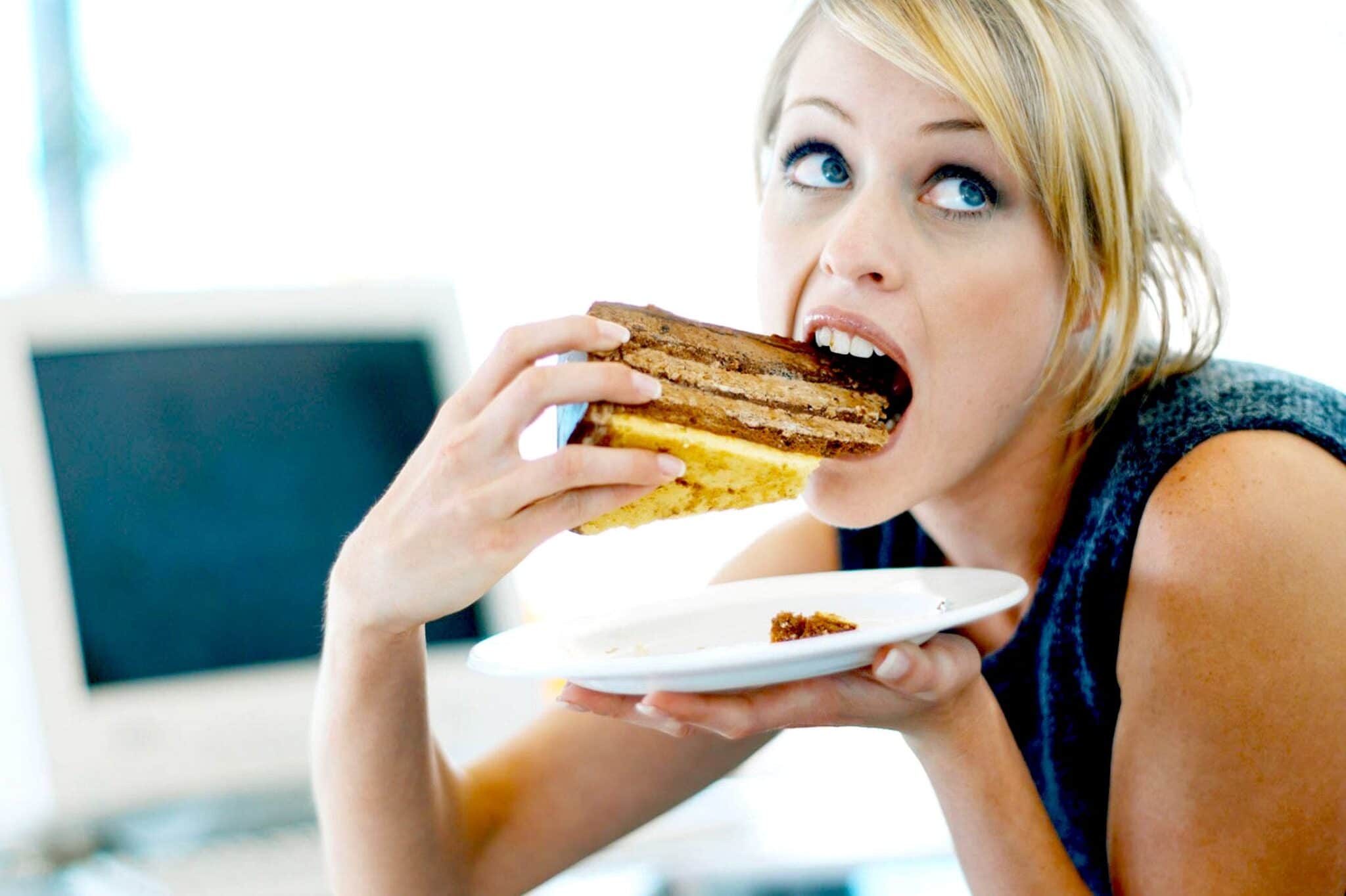
A healthy diet is crucial, but have you ever had the want to consume something that is “forbidden”? Have you ever observed that once you put anything on a list of “bad foods,” it becomes impossible to resist?
The fight is really genuine. And it’s true that when you have food cravings, your body may be signaling you that you need to sleep more or that you need more salt after exercising. However, there are moments when you just need some cheesecake or a bag of fries.
We all feel this way about food, if not the majority of us. Although it may be true that sweets are bad, what exactly is good about depriving ourselves of the meals we like?
Contrary to what social media and popular diets suggest, occasionally pampering yourself is perfectly OK. In fact, it may support a balanced diet and a healthy relationship with food.
Psychological Approach
Foods are frequently emphasized as being either “good” or “bad,” and there are numerous messages about feeling guilty about eating. This is where healthy eating becomes challenging since, despite the temptation to fully cut out “bad” foods or swap them out for better alternatives, most people do not find these tactics to be effective. Additionally, denying yourself the meals you desire can turn into more than simply a test of willpower; it can also completely take your attention away from other aspects of your life.
Taking a step back is essential. Everyone overlooks the fact that eating should be enjoyable in addition to being necessary for survival. When we label a meal as “bad” or “unhealthy,” it may make us crave more of it, but when we eat it in moderation and enjoy it, we retain control.
You will experience emotions of deprivation if you never eat the things that you truly appreciate or that make you happy. The likelihood of bingeing or overeating might rise when you experience these emotions of deprivation, and this can lead to an unhealthy cycle.
Because of the way we and the people we look up to categorize treats, they have become “evil.” Try to avoid categorizing foods as “good” or “bad.” Food is simply food. It may have more or fewer health benefits, and various meals may make your body work better or worse, but it doesn’t make them morally superior.
Treating Yourself To Unhealthy Foods Is Totally Normal
If you want to lose weight, it’s crucial to create a calorie deficit, and indulging in an ice cream binge won’t exactly make that happen. However, you run the danger of losing it if you put too much pressure on yourself to eat precisely all day, every day. Always keep in mind that having a virtuous diet does not automatically make you a good person. So it’s important to understand how to incorporate sweets into your diet regimen.
1. Easing restrictions gives your mind a break.
Nobody enjoys being excellent all the time. When was the last time you followed the speed limit exactly? And there are limits to how much willpower you have. It will be simpler to choose the healthier options the rest of the time if you have a treat snack or a full-on treat day to look forward to.
2. Don’t focus on each food as being totally good or bad – remove labels.
Foods shouldn’t be classified as excellent or evil; that is not very useful. For those who currently have or have had an eating problem, it may also be upsetting, leading to feelings of shame and guilt as well as a negative connection with food.
When consumed in excess, some foods can be harmful to your health while others offer little health advantages. But it only means you have to watch out for overindulging in the incorrect kinds. The AND maintains that as long as your general eating habits are healthy, you may include any kind of food in your regular diet. According to them, labeling certain foods or dietary groupings as good or evil is oversimplified and may result in harmful eating patterns and eating disorders.
When you’re honoring a birthday or another significant occasion, eating might sometimes be done just for enjoyment. It may make you skip enjoyable activities and feel as though your entire life is centered around what you eat if you believe that you can only eat healthy meals all the time.
3. When you learn to eat what you crave without guilt, you’ll probably find that cravings for ‘unhealthy’ foods become way less intense.
You could be thinking, “I’d be eating cookies for breakfast, lunch, and supper if I always gave in to my urges!” That is a typical response, and initially, it could be accurate. Depriving yourself of certain meals makes you more likely to consume them when your self-control wanes or when you ultimately give in.
You may tune into your body, listen to it, and determine whether or not you want a certain meal when you are allowed to eat what you want and the feeling of constraint or scarcity has vanished. Everyone ultimately reaches a stage when they aren’t plagued by strong appetites. You lose interest in a food the more you are exposed to it.
It’s kind of how habituation works; after being exposed to a meal enough times, a person eventually consumes less of it. In other words, if you routinely include a meal that you often want in your diet, over time you’re less likely to struggle with it since it won’t be as novel to you.
4. Trying to trick your body by eating a ‘healthier’ version of whatever you crave doesn’t usually work.
Our favorite comfort foods, such as cauliflower pizza, banana ice cream, spaghetti squash, and meatballs, are all available in lower-calorie, less processed varieties. These meals are perfectly OK, and they are undoubtedly healthier than their full-fat, full-carbohydrate equivalents. But if you’re seeking a sandwich with thick slices of crusty bread, those alternatives are probably not going to live up to your expectations.
It is impossible to trick your body. The “healthy” version could physically fill you up, but it probably won’t satisfy your mind, leaving you craving more food to make up the difference.
5. Giving into food cravings won’t hurt a balanced diet.
Of course, this doesn’t give you free reign to start stuffing yourself silly with fried chicken and cheeseburgers every day. Making allowances for some desires foods, however, is typically a smart idea and can help you keep to a long-term healthy eating plan.
6. Treats could potentially boost your metabolism.
In order to enhance your energy deficit and aid in the management of insulin, the hormone that stimulates appetite and fat storage, many experts advise dieters to reduce calories by cutting back on carbs. Lower insulin levels are thought to promote fat reduction.
The body adjusts to the shortage, though, and frequently tries to hold on to its fat reserves by burning less calories. In other words, your body starts to believe there is a famine. A treat every so often might stop the reduction in calorie burning. However, it’s crucial to exercise moderation.
7. Practice mindful eating.
Maintaining control over your eating is crucial since it may be enjoyable. This is when mindful eating may be useful. When you eat thoughtfully, you avoid feeling guilty after indulging in these reward foods and instead feel content and full.
This does not imply that “I must quit eating that since it is unhealthy for me,” as that is not truly attentive. It conveys the impression that you can enjoy it and feel content eating it after consuming a reasonable amount of it.
Eat without interruptions, such as the TV, to practice mindful eating. Feel the texture and crunch. Consider the flavor instead.
If you’re truly craving that brownie, go ahead and indulge, but when you do, take your time, savor each bite, and eat it slowly. By the time you’ve finished eating it, you’ll probably feel really fulfilled and love it, and you’ll be ready to start making better decisions again.
8. Just enjoy it!
Enjoy your occasional pleasures as long as they don’t take the place of wholesome meals.
Not everything has to do with weight.
If we can improve our connection with food, even if it means occasionally indulging in a brownie and gaining a few pounds beyond our target weight, that’s much better than having a bad relationship with food and reaching our target weight.
9. Listen to your body.
Even after receiving all of this assurance, you could still be concerned that when you start eating what you really want, healthy eating will be completely abandoned. This is where being in touch with your body’s signals comes in.
When you are seeking something, consider both the flavor and the way it will make you feel in your body. It’s possible that you’ll overindulge in cookies one day (which is OK! ), only to discover that you felt lethargic all afternoon. The next time you indulge in a cookie desire, keep this in mind. If you stop after one or two, it will seem more like you are listening to your body than like you are restricting yourself.
When you’re hungry at the end of the day, indulge in that piece of cake or serving of mac and cheese, then carry on with your routine. Trust that you won’t overdo it, and tell yourself that you’ll soon be yearning a grain bowl loaded with veggies or a fresh fruit salad. Since a varied diet can include a wide variety of foods, including some that are typically regarded as “unhealthy,”
